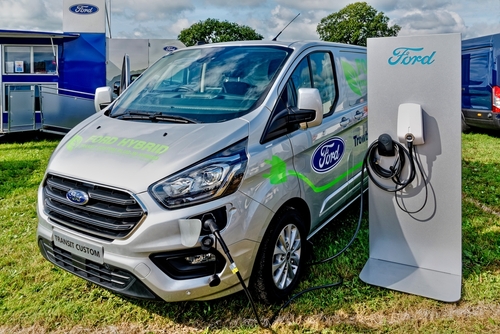
A new report from Ford focuses on efforts the company has made toward sustainability, including audits of its mineral battery supply chain.
According to its 2023 Integrated Sustainability and Financial Report, an accounting of its progress toward a more sustainable, inclusive, and equitable transportation future, the company said it had conducted 30 supplier audits along selected critical mineral battery supply chains and audited its nickel, lithium, and cobalt due diligence management systems.
The company said it is not only on track to achieve carbon neutrality by 2050 across its vehicle, operations, and supply chain but it has committed to sourcing raw materials responsibly and making its EV and battery supply chain more transparent.
“We believe the long-term success of any business is inextricably linked with creating value for customers, employees, and communities while also caring for the planet,” said Executive Chair Bill Ford. “We are undertaking a massive transformation to lead the electric and connected era of transportation and are committed to being transparent about our progress and opportunities for improvement. We are excited and optimistic about the future and look forward to making carbon-neutral transportation a reality.”
The company said it was working to ensure its global supply chain protects the environment by securing raw materials directly from mining companies aligned with its corporate policies. In 2021, the report said, Ford initiated EV and battery supply chain mapping and auditing to understand the origins of its EV supply chain – especially for nickel, lithium, cobalt, and graphite. Additionally, the company said it trained 844 purchasing employees, 2,647 other employees, and 979 suppliers on supply chain topics surrounding sustainability like anti-corruption, fair labor, and environmental protection practices.
The report also shows that Ford is on track with its carbon neutrality goals and estimates that lifetime vehicle carbon dioxide emissions may be reduced by as much as 60 percent for consumers driving a Ford EV versus a similar internal combustion engine vehicle. The company said emissions from its manufacturing facilities are down by 40 percent and that in 2022, 60 percent of the electricity it used was carbon-free.